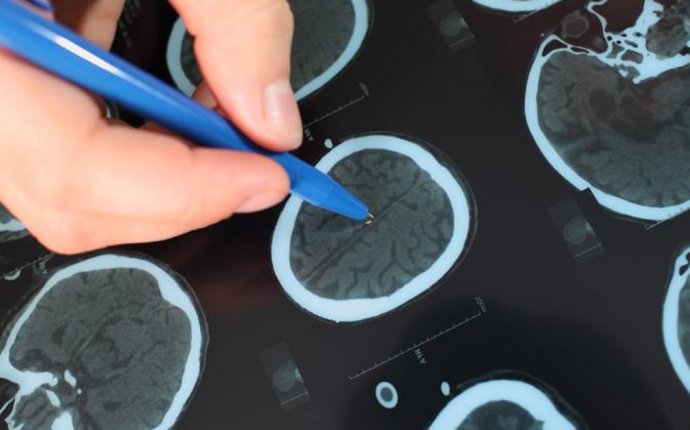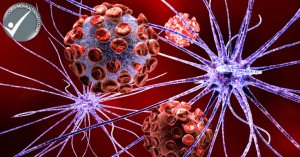
Brain Disorders List
 We have cells in the brain and the rest of the body that die and get replaced with new ones. But sometimes this process can go wrong and there may be an imbalance between cells born and those dying. More cells being born will lead to an accumulation of them, leading to what is called a tumor.
We have cells in the brain and the rest of the body that die and get replaced with new ones. But sometimes this process can go wrong and there may be an imbalance between cells born and those dying. More cells being born will lead to an accumulation of them, leading to what is called a tumor.
These tumors can be cancerous or non-cancerous. It is suspected that nearly 700, 000 people in the USA are living with a tumor. Common causes include tobacco, alcohol, chemicals and other toxins, sunlight exposure and obesity.
Tumors can be dangerous especially when they are cancerous.
Trauma
This is an emotional response observed in people after encountering a terrible experience. These experiences are so diverse. Examples are rape, accident, violence, terrorism and more. The person may appear withdrawn, show signs of depression and anxiety, be unpredictable emotionally and more.
Trauma should be treated as soon as possible otherwise the person’s quality of life can be severely affected. Anyone can suffer from trauma but it is usually children who fail to cope with it most.
Increased Intracranial Pressure
Our skulls are surrounded by a fluid called cerebrospinal fluid. And a rise in pressure of this fluid will lead to a condition known as Increased Intracranial Pressure. This can damage the brain or the spinal cord. So seek medical attention without any delay as this is an emergency.
Some of the causes can be tumors, injuries, meningitis, bleeding into the brain and too much cerebrospinal fluid.
Symptoms include vomiting, losing consciousness, blurred vision, headache and seizures. Medical workers may drain the cerebrospinal fluid; give medication to stop inflammation or even open up the skull as part of treatment. Early medical care will increase chances of recovery; this is a dangerous brain disease.
Vascular Conditions
Vascular diseases are conditions which affect the way our vascular system works. For your information, this system includes all blood vessels in the body. They vessels may burst, get clogged or become thick. This will surely affect the way blood gets to our brains.
A busted vessel for example will cause bleeding in the brain. A clogged one on the other hand will not transport the much needed blood to the brain. There are many ways vascular diseases will affect the brain.
Common causes include injury, diabetes, heart disease, obesity and smoking. So avoiding these and doing some exercises will minimize the risk.
Autoimmune Conditions
Sometimes, mistakenly of course, your immune system will attack your own body cells. Remember the immune system is what protects us from all the harmful viruses, bacteria and more when they enter our bodies.
The immune system can attack any part of the body, and that includes the brain. The condition is called Autoimmune Brain Disease (ADB). It is a very rare brain disease. Specifically, it accounts for less than 1% of all central nervous disorders. So researching it to find the real cause or medication is not easy.
Neurodegenerative Conditions
This is a general term referring to all diseases that result in loss of cognitive abilities and memory. These diseases of the brain destroy the brain cells called neurons hence the decrease in mental capabilities.
Some of these include Alzheimer’s disease, Parkinson’s disease, multiple sclerosis, amyotrophic lateral sclerosis and Huntington’s disease. They are common in the elderly. And with the number of aged people expected to increase, we can bet the cases will increase with them.
Conclusion
The brain, as smart as it is, is not invincible. It can actually be conquered with all these diseases. So taking good care of it is a must for each and every one of us. Some of these are quite unavoidable I know. But still, we can try our best to avoid those we can. We have to keep our brain healthy and fit. Considering all the benefits the brain brings to us, I think it’s worth the effort to avoid those brain diseases we can.
Take Action: Support Consumer Health Digest by linking to this article from your website
Permalink to this article:
Embed article link: (Click to copy HTML code below):
Reprinting this article:
Non-commercial use OK, cite ConsumerHealthDigest.com with clickable link.
Follow Consumer Health Digest on Facebook, Twitter, YouTube, Pinterest and Google Plus
Ashley Stein holds a bachelor's degree in education from the Birmingham-Southern College in United States. She is a health content writer and editor. She used to work as a content editor for leading online websites including blogs and journals. Her areas of specialization include writing educational and health articles. She is contributing to Consumer Health Digest for the past 4 years.









